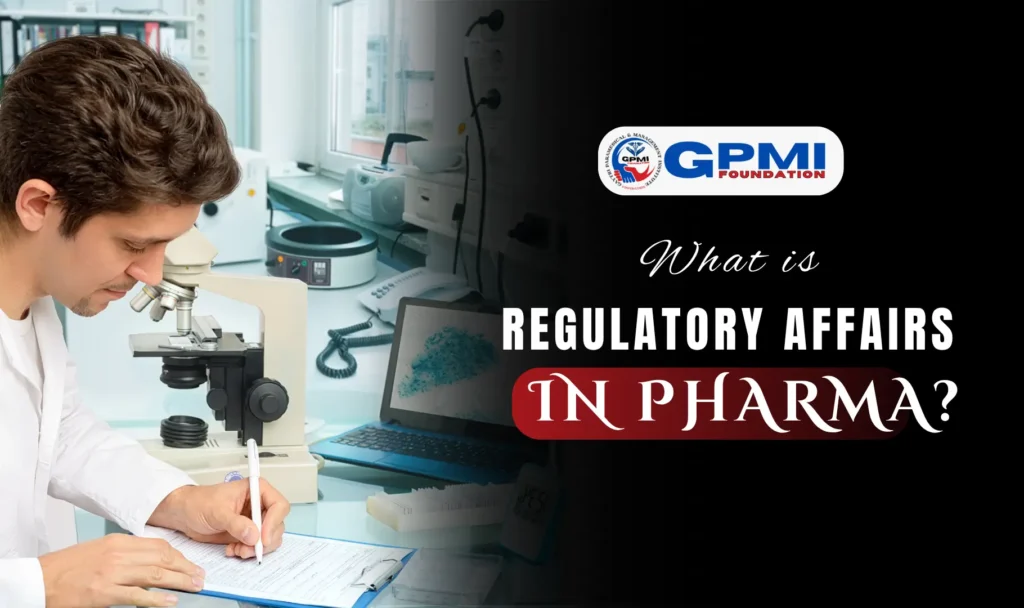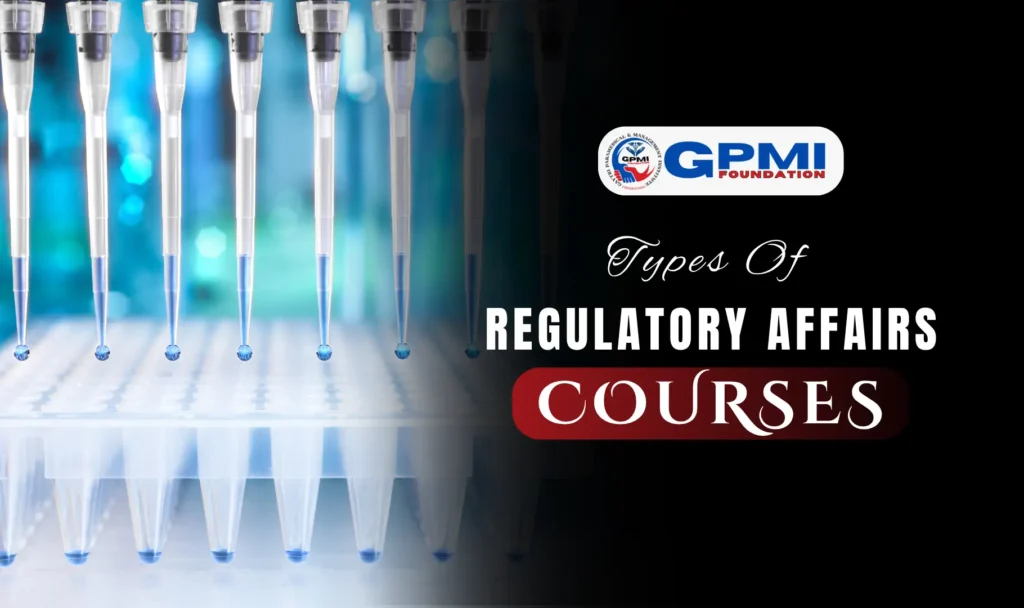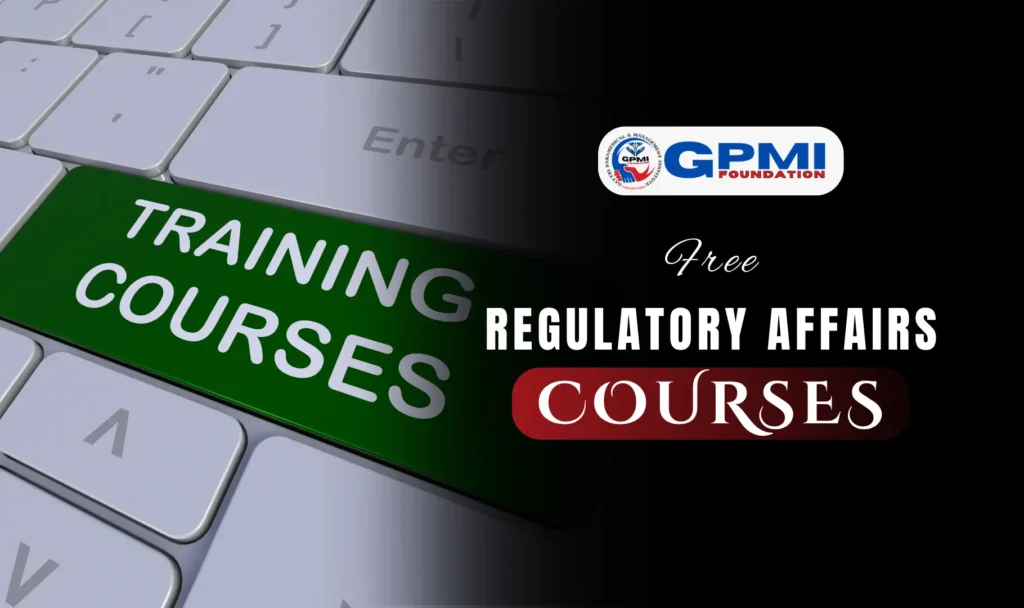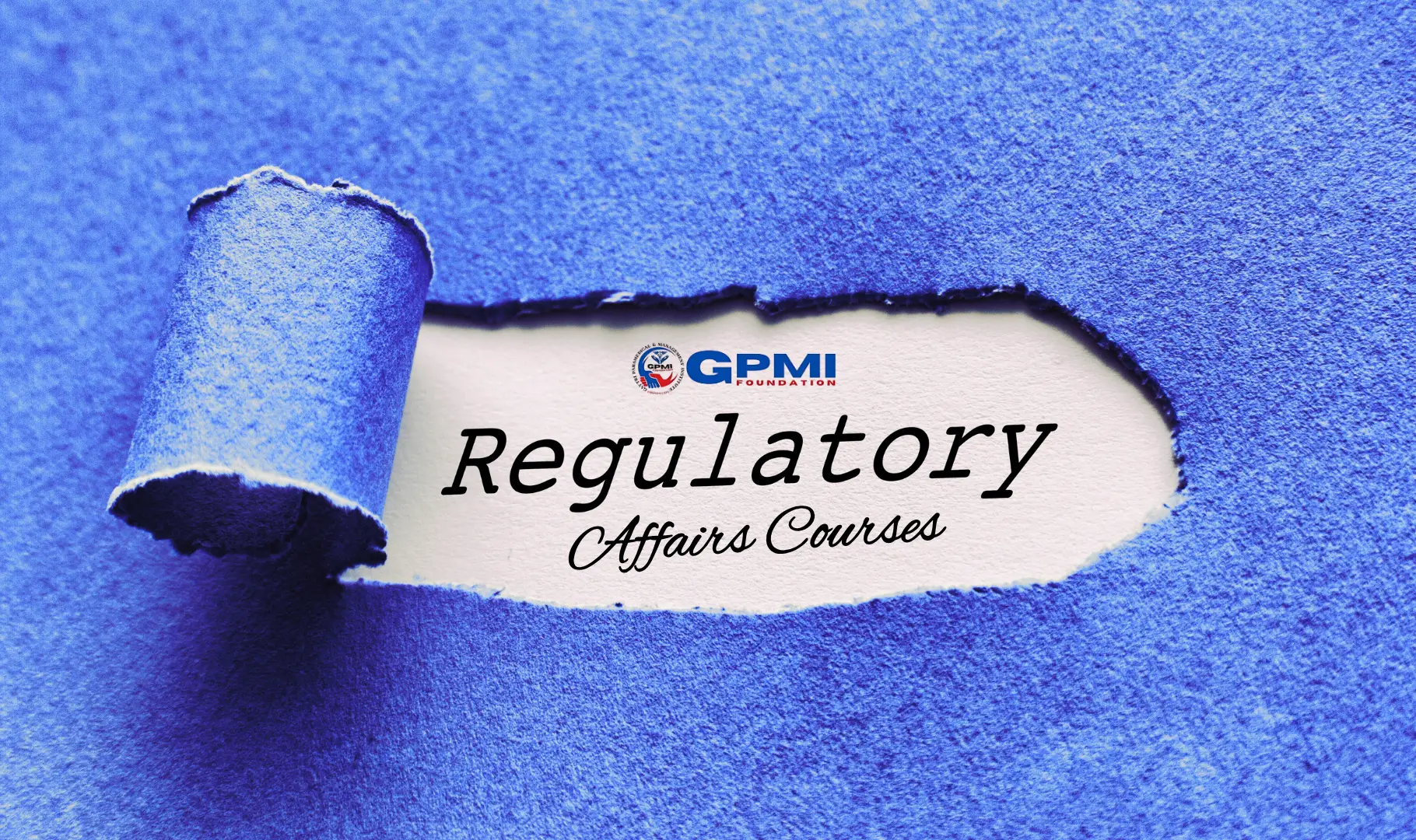In 2025, the world of medicine, biotechnology, and healthcare is growing faster than ever before—and behind every successful product on the market is a team of experts making sure it meets all the rules. These professionals work in Regulatory Affairs, a field that ensures new drugs, devices, and treatments are safe, effective, and approved by government authorities.
If you’re a science or pharmacy student looking for a smart, stable, and respected career path, Regulatory Affairs Courses might be your golden ticket. These courses are designed to train students in understanding the laws, guidelines, and paperwork needed to launch a product in the healthcare market.
The best part, You don’t need to be a doctor to make a big impact in this field. With the right skills and certifications, you can step into a career that’s not only in high demand but also full of growth opportunities. It’s an intelligent career move for those who want to be the brain behind safe healthcare innovations.
Table of Contents
What is Regulatory Affairs in Pharma?

Regulatory Affairs in pharma is a very important field that acts like a bridge between pharmaceutical companies and government health authorities. It ensures that medicines, medical devices, and other health products are safe, effective, and approved by law before they reach the public.
Regulatory Affairs definition can be explained as the department or role in a pharma company that handles all the rules and legal paperwork needed to get a product approved in different countries. These experts make sure the company follows guidelines from agencies like the US FDA, CDSCO (India), or EMA (Europe).
In short regulatory affairs meaning is simply managing and following the rules that help bring safe medicines to the market.
There are many pharma regulatory affairs courses available for students who want to work in this field. These courses teach about drug approval processes, clinical trials, and international regulations. It’s a smart career choice for science or pharmacy graduates looking for a stable and impactful job.
Regulatory Affairs Courses Details
Regulatory Affairs courses are designed for students and professionals interested in the legal and regulatory side of the pharmaceutical and healthcare industries. These courses teach how to manage approvals, compliance, and documentation as per national and international health regulations.
Therefore, we’ll explore the course duration, eligibility, fees, and top institutes offering Regulatory Affairs programs in India.
Regulatory Affairs Courses Duration
Regulatory Affairs courses come in various formats.
- Certificate courses usually last 3 to 6 months and are ideal for beginners or working professionals.
- Diploma and PG Diploma courses typically take 1 year to complete.
- Master’s programs like M.Sc. in Regulatory Affairs may take 2 years. Some online courses offer flexible durations.
Regulatory Affairs Courses Eligibility:
The basic eligibility for most Regulatory Affairs courses is a background in science.
- Students with a B.Sc., B.Pharm, M.Pharm, BDS, MBBS, or biotechnology degrees can apply.
- Some short-term certificate courses may allow final-year students or working professionals.
- For higher-level programs like a Master’s or PG Diploma, a graduate degree is required.
Regulatory Affairs Courses Fees
The fees for Regulatory Affairs courses vary based on the type and institute.
- Short-term certificate programs can cost between ₹10,000 to ₹50,000.
- PG Diploma courses may range from ₹50,000 to ₹1,50,000.
- Master’s degree programs in Regulatory Affairs can cost anywhere from ₹1,00,000 to ₹4,00,000, depending on whether the course is online or full-time.
Best Regulatory Affairs Courses in India
Some of the best Regulatory Affairs courses in India are offered by institutes like
- Jamia Hamdard (New Delhi),
- National Institute of Pharmaceutical Education & Research (NIPER Mohali)
- Institute of Clinical Research India (ICRI)
- Symbiosis International University (SIU)
Online platforms like Coursera and Udemy also offer certification programs. These courses focus on drug regulations, clinical trials, and documentation skills required for the pharma industry.
Types of Regulatory Affairs Courses

Regulatory Affairs is a growing field in the pharmaceutical and healthcare sectors, offering various learning options for students and professionals. These courses come in different formats to suit different career levels. Let’s explore the types of courses available in this field.
Pharmaceutical Regulatory Affairs Course
A Pharmaceutical Regulatory Affairs course is designed to equip students and professionals with the knowledge required to handle the legal and scientific aspects of drug approval and regulation.
This field plays a key role in ensuring that pharmaceutical products are safe, effective, and compliant with health authority guidelines. These courses are ideal for science graduates who want to enter the regulatory field of the pharma industry.
Key Highlights:
- Learn about drug development, clinical trials, and regulatory submissions.
- Understand the roles of global agencies like US FDA, CDSCO, EMA, and WHO.
- Get trained in preparing dossiers, compliance documents, and product labeling.
- Explore national and international regulations for drug safety and quality control.
- Available as certificate, diploma, postgraduate diploma, or M.Sc. programs.
With growing global pharma markets and strict compliance needs, professionals with expertise in pharmaceutical regulatory affairs are in high demand across companies, CROs, and government bodies.
Drug Regulatory Affairs Course
A Drug Regulatory Affairs course focuses on the laws, policies, and procedures involved in the approval, marketing, and monitoring of pharmaceutical drugs. It trains students and professionals to ensure that drugs meet the safety, quality, and efficacy standards set by regulatory authorities such as the US FDA, CDSCO (India), and EMA (Europe).
Key Features:
- Covers drug development process, clinical trials, and post-marketing surveillance.
- Teaches international guidelines like ICH, WHO, and ISO standards.
- Prepares candidates for roles such as Regulatory Affairs Associate, Drug Safety Officer, or Documentation Specialist.
This course is ideal for pharmacy, life sciences, and biotechnology graduates who want to work in the compliance side of the pharma industry. Students learn how to prepare regulatory submissions, manage product licenses, handle audits, and maintain documentation throughout a drug’s lifecycle.
This course opens doors to careers in pharmaceutical companies, regulatory bodies, contract research organizations (CROs), and healthcare consultancies.
Food Regulatory Affairs Courses
Food Regulatory Affairs courses are specialized programs that focus on the rules, policies, and legal frameworks related to the safety, labeling, marketing, and distribution of food products.
These courses are ideal for students with backgrounds in food science, nutrition, biotechnology, microbiology, or life sciences who wish to work in the food industry’s regulatory sector.
The course helps learners understand how to ensure food products meet national and international safety standards set by agencies like FSSAI (India), FDA (USA), EFSA (Europe), and Codex Alimentarius.
Key Topics Covered:
- Food safety laws and compliance
- Labeling and packaging regulations
- Import/export and trade regulations
- Risk assessment and food hazard management
- Documentation and licensing procedures
Graduates of this course can work as Food Regulatory Officers, Quality Assurance Executives, Compliance Analysts, or Labeling Specialists in food processing companies, regulatory agencies, and FMCG industries. This field is growing with the rising demand for safe and regulated food products worldwide.
Medical Device Regulatory Affairs
Medical Device Regulatory Affairs is a specialized area that deals with the legal and regulatory requirements for developing, testing, manufacturing, and marketing medical devices. Unlike pharmaceuticals, medical devices follow different classification systems and approval pathways, making regulatory knowledge essential for companies to bring their products to market safely and legally.
This field focuses on compliance with national and international standards set by authorities like the US FDA, CDSCO (India), and the European MDR (Medical Device Regulation).
Key Topics Covered:
- Classification and risk assessment of medical devices
- Regulatory submission and approval processes
- CE marking, ISO 13485, and other quality standards
- Labeling, packaging, and post-market surveillance
- Import/export regulations and registration
Professionals trained in Medical Device Regulatory Affairs can work as Regulatory Affairs Specialists, Quality Compliance Officers, or Clinical Evaluation Report (CER) Writers in medical device companies, consultancies, or global healthcare organizations. It is a fast-growing career path with high demand for skilled regulatory experts.
Global Regulatory Affairs Course
A Global Regulatory Affairs course is designed to train students and professionals on the worldwide laws, guidelines, and practices required to register and market pharmaceutical drugs, medical devices, and health products across different countries.
This course focuses on understanding the regulatory frameworks of major health authorities such as the US FDA, EMA (Europe), PMDA (Japan), and CDSCO (India).
It is ideal for pharmacy, life sciences, biotechnology, or healthcare graduates who want to work in multinational companies or aim to handle global compliance roles.
Key Topics Covered:
- Overview of international regulatory agencies and their procedures
- Common Technical Document (CTD and eCTD) preparation
- Drug approval process in regulated and semi-regulated markets
- Regulatory strategies for global product launch
- Post-marketing compliance and lifecycle management
Completing this course opens up opportunities in pharmaceutical MNCs, global CROs, and export regulatory teams. It builds strong knowledge for handling multi-country submissions and regulatory audits efficiently.
Online Regulatory Affairs Courses
Online Regulatory Affairs courses are flexible learning programs designed for students, working professionals, and career switchers who want to gain in-depth knowledge of drug, food, or medical device regulations without attending regular classes.
These courses are available in various formats—short-term certifications, diplomas, and even postgraduate degrees—offered by reputed universities, training institutes, and online platforms like Coursera, Udemy, FutureLearn, and ICRI.
They allow learners to study at their own pace and gain real-world skills through recorded lectures, live sessions, case studies, and industry-based projects.
Key Benefits and Topics Covered:
- Flexibility to learn from anywhere, anytime
- Affordable and time-saving compared to offline courses
- Covers drug approval process, dossier preparation, regulatory guidelines (FDA, EMA, CDSCO)
- Focus on CTD/eCTD submissions, clinical trials, labeling, and global compliance
- Suitable for pharmacy, life sciences, biotech graduates, and professionals
Online Regulatory Affairs courses are ideal for upgrading your skills, shifting careers, or exploring global job opportunities—all from the comfort of home.
Free Regulatory Affairs Courses

For students and professionals looking to enter the pharma and healthcare compliance sector without spending much, there are several regulatory affairs courses free of cost available online.
These regulatory affairs courses online free offered by platforms like Coursera, FutureLearn, and Alison, these courses provide self-paced learning and often come with optional paid certificates.
Several reputed universities and training portals also offer free online regulatory affairs courses in India, covering topics like ICH guidelines, US FDA approval process, regulatory documentation, and GMP practices.
These introductory-level courses are especially helpful for pharmacy, life sciences, and biotech students looking to build foundational knowledge before enrolling in advanced paid programs.
Key Features:
- Self-paced and beginner-friendly
- No registration or tuition fee
- Useful for career exploration and skill-building
- Includes quizzes, video lectures, and real-world examples
Universities & Institutions Offering Free Courses
Here are some reputed universities and training portals that offer free online Regulatory Affairs courses in India (or accessible from India):
| Institution / Platform | Course Offered | Notes |
|---|---|---|
| Coursera (via University of California, San Diego) | Drug Commercialization | Free to audit (paid certificate optional) |
| FutureLearn (via University of Hertfordshire) | Good Pharmaceutical Manufacturing Practice (GMP) | Free with limited access; paid for full features |
| NPTEL (IITs – India) | Introduction to Drug Discovery / Medical Biomaterials | Free video lectures, certificate with nominal fee |
| Alison | Diploma in Regulatory Compliance | 100% free, optional paid certificate |
| ICRI India (Institute of Clinical Research India) | Occasionally offers free webinars or short-term free modules | Registration-based Admission |
| WHO Online Training (OpenWHO platform) | Regulatory systems strengthening modules | Free, WHO-certified, globally recognized |
| Swami Vivekanand Subharti University – MOOC Portal | Offers online pharma-related courses with some free content | Based in India |
To access regulatory affairs courses online free, search for the course title with “free audit option” or check platforms like Swayam (by Govt. of India) and ePG Pathshala for academic content on pharma regulation.
Regulatory Affairs Jobs for Freshers
There is a growing demand for regulatory affairs jobs in pharma industry for freshers, especially as the global pharmaceutical market expands and becomes more regulated.
Fresh graduates in pharmacy, life sciences, biotechnology, or chemistry can find exciting entry-level roles in the regulatory departments of pharmaceutical companies, contract research organizations (CROs), and health agencies.
The role of regulatory affairs department is to ensure that all drugs, medical devices, or food products meet the legal requirements for safety, quality, and efficacy before they are marketed.
Freshers usually start as Regulatory Affairs Assistants, Trainees, or Junior Executives, where they support tasks like document preparation, dossier compilation, product registration, and following up with health authorities.
Common Job Titles for Freshers:
- Regulatory Affairs Trainee
- Regulatory Affairs Executive (Entry-Level)
- Documentation Coordinator
- Drug Safety Assistant
With the right training or certification, freshers can grow quickly into senior roles, making regulatory affairs a stable and rewarding career path.
6 Steps to Become A Regulatory Affairs Officer?

Becoming a Regulatory Affairs Officer is a great career choice for those interested in the legal, scientific, and compliance aspects of the pharmaceutical, biotech, or healthcare industry. Here are 6 key steps to help you enter and grow in this field:
1. Complete Your Graduation
Begin your journey by completing a bachelor’s degree in Pharmacy (B.Pharm), Life Sciences, Biotechnology, Microbiology, Chemistry, or Medicine. These fields provide the scientific knowledge required to understand drug development, clinical trials, and product safety rules.
2. Enroll in a Regulatory Affairs Course
To gain specialized knowledge, enroll in a certificate, diploma, or postgraduate course in Regulatory Affairs. These courses cover drug regulations, dossier preparation, clinical trials, and international guidelines like US FDA, EMA, and CDSCO. This focused training enhances your resume and prepares you for real-world industry roles with greater confidence.
3. Learn Industry Tools and Guidelines
Develop a strong command over essential regulatory software, CTD/eCTD dossier formats, and international standards like ICH, WHO, ISO, and GxP. Understanding these tools and frameworks is crucial for handling submissions, audits, and compliance tasks, making you technically sound and highly employable in the regulatory affairs field.
4. Gain Internship or Entry-Level Experience
Seek internships or entry-level positions in pharmaceutical companies, regulatory consultancies, or CROs to apply your knowledge in real-world settings. Practical experience in regulatory documentation, product registration, and audits not only strengthens your skills but also significantly boosts your chances of securing full-time roles in the industry.
5. Build Soft Skills & Effective Communication
Effective communication, precise writing, and strong coordination are vital in regulatory affairs, where you often interact with global health authorities and cross-functional teams. Clear documentation, timely follow-ups, and collaborative teamwork play a key role in ensuring successful regulatory submissions and smooth approval processes across various regions.
6. Apply for Jobs and Stay Industry-Updated
Start applying for roles like Regulatory Affairs Officer or Executive in pharma companies, CROs, or medical device firms. Simultaneously, keep yourself updated with the latest global regulatory changes by attending industry webinars, workshops, and enrolling in refresher courses. Continuous learning keeps your skills relevant and career growth steady.
By following these 6 steps, you’ll be well-prepared to enter the dynamic and rewarding field of regulatory affairs, equipped with the knowledge, skills, and confidence to grow your career successfully.
Conclusion
Regulatory Affairs is a vital and fast-growing field in the pharmaceutical, healthcare, food, and medical device industries. As global regulations become more complex and strict, the demand for trained regulatory professionals continues to rise. With the right educational background, specialized training, and practical experience, freshers and professionals alike can build a successful career in this domain.
By understanding global guidelines like FDA, EMA, and CDSCO to mastering tools like CTD/eCTD and quality systems, you will strengthens your industry readiness. Whether you pursue offline or online, consistent learning and upskilling are the key.
Entry-level roles such as Regulatory Affairs Executive or Documentation Specialist offer a strong starting point. By combining technical skills, communication abilities, and industry exposure, you can confidently grow in this rewarding career path—making a real difference in public health and global compliance.







